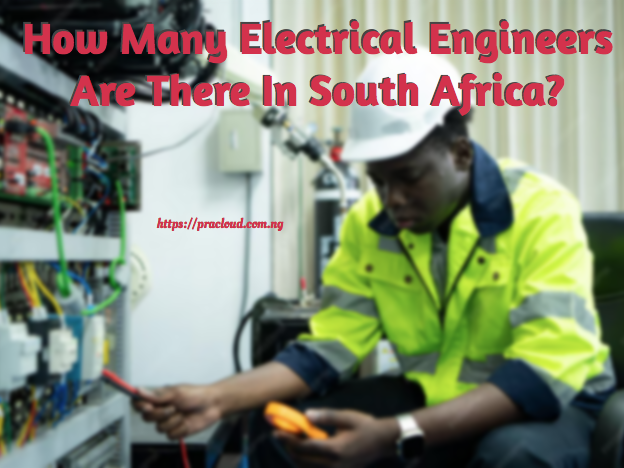How Many Electrical Engineers Are There In South Africa?
How Many Electrical Engineers Are There In South Africa?
How Many Electrical Engineers Are There In South Africa?
Over 14,800 registered professional engineers, engineering professionals who have a degree from a recognised institution, are among the approximately 34,000 registered professionals in the ECSA database. A professional organization that speaks for electrical and electronic engineers, technologists, and technicians in Southern Africa is the South African Institute of Electrical Engineers (SAIEE).
The Engineering Council of South Africa (ECSA), the statutory body that registers professional engineers, professional certificated engineers, professional engineering technologists, and professional engineering technicians in South Africa, has listed the organization as a recognized Voluntary Association.
Over the course of a century, the SAIEE has engaged in a variety of activities, including publishing, educating, promoting electrical engineering, fostering the professional growth of its members, hosting public events, and taking part in public discussions that have an impact on the industry, profession, and society.
READ ALSO: How Long Does It Take To Become An Electrical Engineer?
What Electrical Engineers Do in South Africa?
From electric motors and navigation systems to power generation machinery and the electrical parts of automobiles and personal electronics, electrical engineers design, develop, test, and oversee the production of electrical equipment.
With employment opportunities in a bewildering variety of industries, electrical engineering is a tremendously diverse discipline. Electrical engineers play a key role in thousands of businesses, including those that produce and distribute electric power as well as those that make vehicles and cellphones.
How Long Does It Take To Become An Electrical Engineer In South Africa?
You must earn a bachelor’s degree in electrical engineering or a closely related subject to work as an electrical engineer.
With the help of this degree, you will have the coursework and practical experience needed to seek a career as an electrical engineer. As a result, becoming an electrical engineer will take you about 4 years.
Is electrical Engineering in Demand in South Africa?
Electrical engineers are generally in demand. The Bureau of Labor Statistics predicts a 9% increase in employment for electrical engineers over the next few years. As more experienced engineers retire, there is always a need for entry-level engineers.
How Much Does An Electrical Engineer In South Africa Earn?
In South Africa, electrical engineers earn an average of around R35,316 per month. Salaries vary depending on experience, skills, and where one works. Beginners may start with a lower income, while experienced engineers or those with specialized knowledge can earn much more.
How To Become An Electrical Engineer in South Africa
Becoming an electrical engineer in South Africa requires the right studies, training, and registration. Consider the following points:
- Complete High School (Matric)
Good results in Mathematics and Physical Science are needed to qualify for engineering studies.
- Obtain an Electrical Engineering Qualification
You can study either a university degree (BEng or BSc Eng) or a diploma/degree from a university of technology (such as TUT or CPUT). Both options prepare you for a career in the field.
- Gain Practical Training
Workplace experience is essential for applying theoretical knowledge and developing hands-on skills.
- Register with ECSA
Once you meet academic and training requirements, register with the Engineering Council of South Africa to be recognised as a professional.
- Build Experience and Specialise
Engineers may later focus on power systems, telecommunications, renewable energy, or automation.
- Keep Learning
Continuous development is key to staying current with new technologies and industry standards.
South Africa does not have enough electrical engineers to meet its growing needs in infrastructure, energy, and technology. Reports often highlight shortages, particularly in municipalities, where the lack of qualified professionals makes it harder to deliver essential services and drive development. Visit the website for more information. I hope the provided information is helpful. Share your thoughts below in the comment section.
RELATED LINKS





